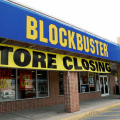 When it comes to trying to make a business plan, Hollywood studios should focus more on a handful of movies that have a mass audience rather than a wider range of feature films that serve niche audiences, according to a Harvard professor.
When it comes to trying to make a business plan, Hollywood studios should focus more on a handful of movies that have a mass audience rather than a wider range of feature films that serve niche audiences, according to a Harvard professor.
Professor Anita Elberse told Bloomberg BusinessWeek that the recent failure of some big blockbuster movies – such as “Lone Ranger” – does not sway her opinion.
“You can’t put too much weight on a few observations,” she told Bloomberg. “You need to look across the whole population for a number of years. When you do that, you see that the blockbuster strategy is still the way to go.”
Elberse has spent years studying movies and how money is made at the box office. In her book, “Blockbusters: Hit-Making, Risk-Taking, and the Big Business of Entertainment,” Elberse argues that there are management lessons to be found in the business of movie-making.
According to the book, Elberse explores the strategies used by blockbuster companies to beat out the competition. She also explains why executives in the entertainment business – movies, television, sports, music and publishing – spend “outrageous” sums of money to find the next big blockbuster and will lavish money on big-name stars and hot-selling products.
This “high-stakes” approach to business is the “surest path to long-term success,” according to the book.
The book provides some interesting insights to those in business or seeking a degree in business. For example, she opens the book with the opposing strategies of two big-name entertainment executives: Alan Horn at Warner Bros. and Jeff Zucker at NBC Universal.
When he took over the reins as CEO at Warner in 1999, Horn decided to pursue a strategy in which large sums of money were spent on a handful of “tentpole” movies, the sort of blockbuster, event movies that costs hundreds of millions to make but have the star power and production values he felt audiences would appreciate, according to the book.
At NBC Universal, Zucker followed a different path, cutting back on programming costs and pursuing a large number of smaller properties for the television network that could be acquired at a lower cost. He was “managing for margins not ratings,” according to his co-chairman at NBC.
Horn’s strategy was a major success, Elberse writes. Fueled by the success of films such as the “Harry Potter” franchise, the trilogy of “Batman” films by director Christopher Nolan, the “Ocean’s 11” movies by acclaimed director Steven Soderbergh and the “Sherlock Holmes” films starring Robert Downey Jr., Warner Bros. was the first studio in history to surpass $1 billion at the box office for 11 years in a row.
Zucker, meanwhile, was asked to leave in 2010 after NBC fell from first place to fourth place among the major networks in television ratings. “It’s clear that his ‘managing for margins’ strategy had disastrous results,” Elberse writes.
Early in 2013, according to the Bloomberg article, the blockbuster theory took a hit as Steven Spielberg said just a few big budget movie failures would “change the paradigm” of Hollywood. The failure of movies such as “R.I.P.D.,” “Lone Ranger” and “White House Down” seemed to validate Spielberg’s warning.
However, Elberse said a large set of results over a longer period of time are needed to see the wisdom of blockbusters. Certainly the results from the summer supported her theory, according to Bloomberg, with blockbuster movies “Iron Man 3,” “Fast and the Furious 6,” “Star Trek: Into Darkness” and “Man of Steel” cleaning up at the box office.





